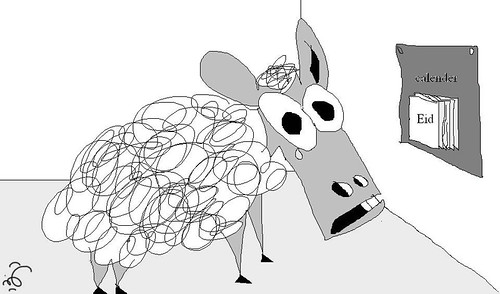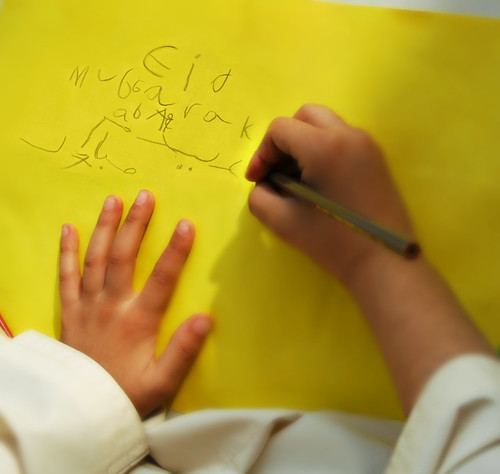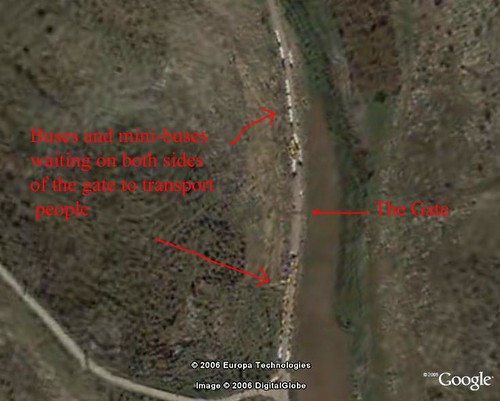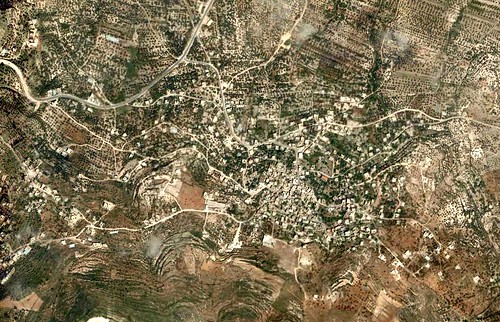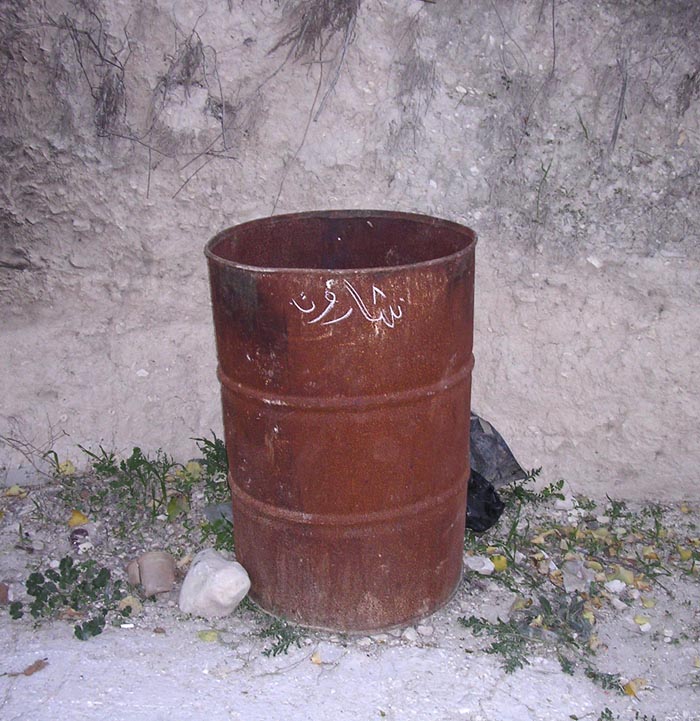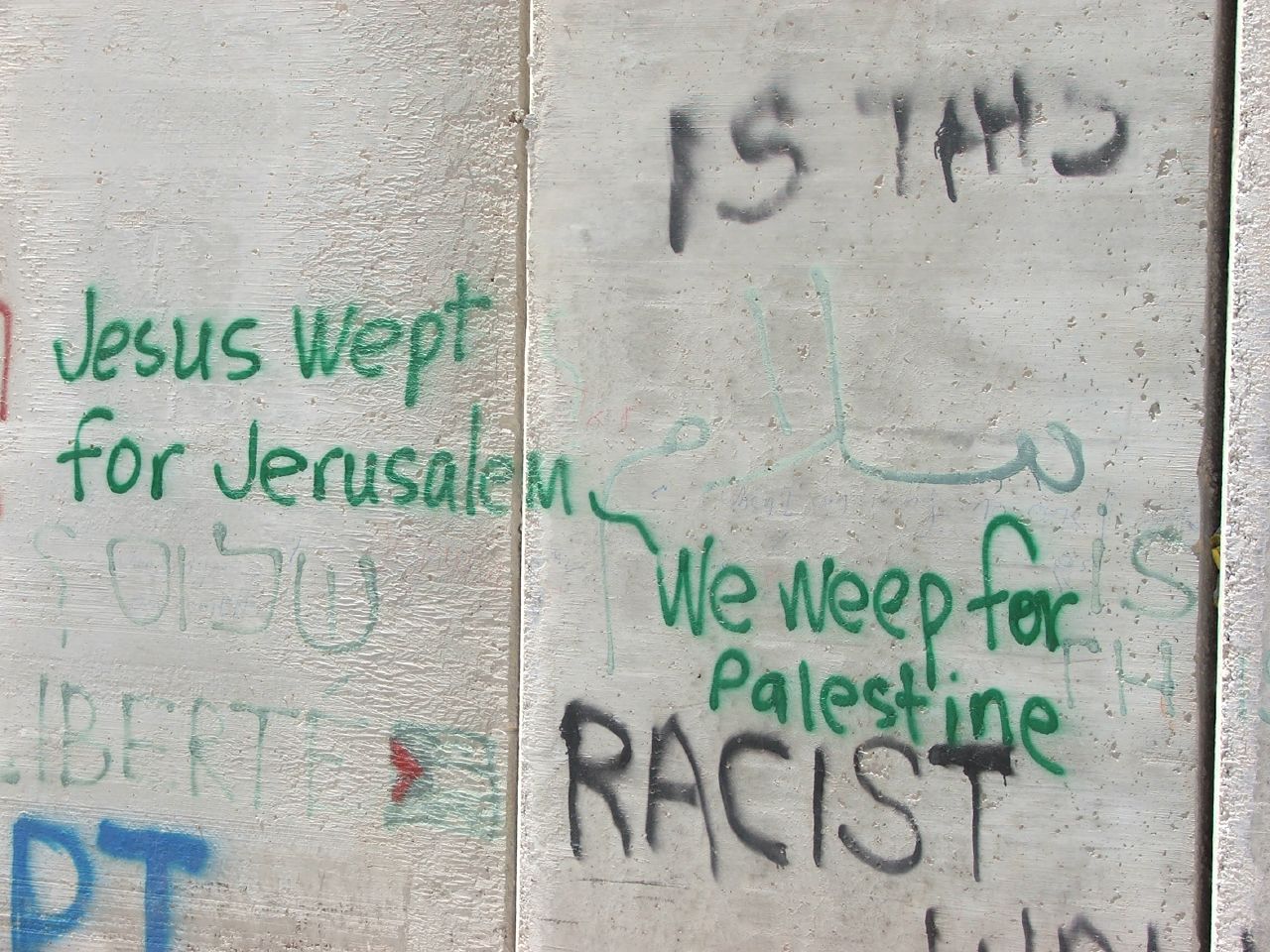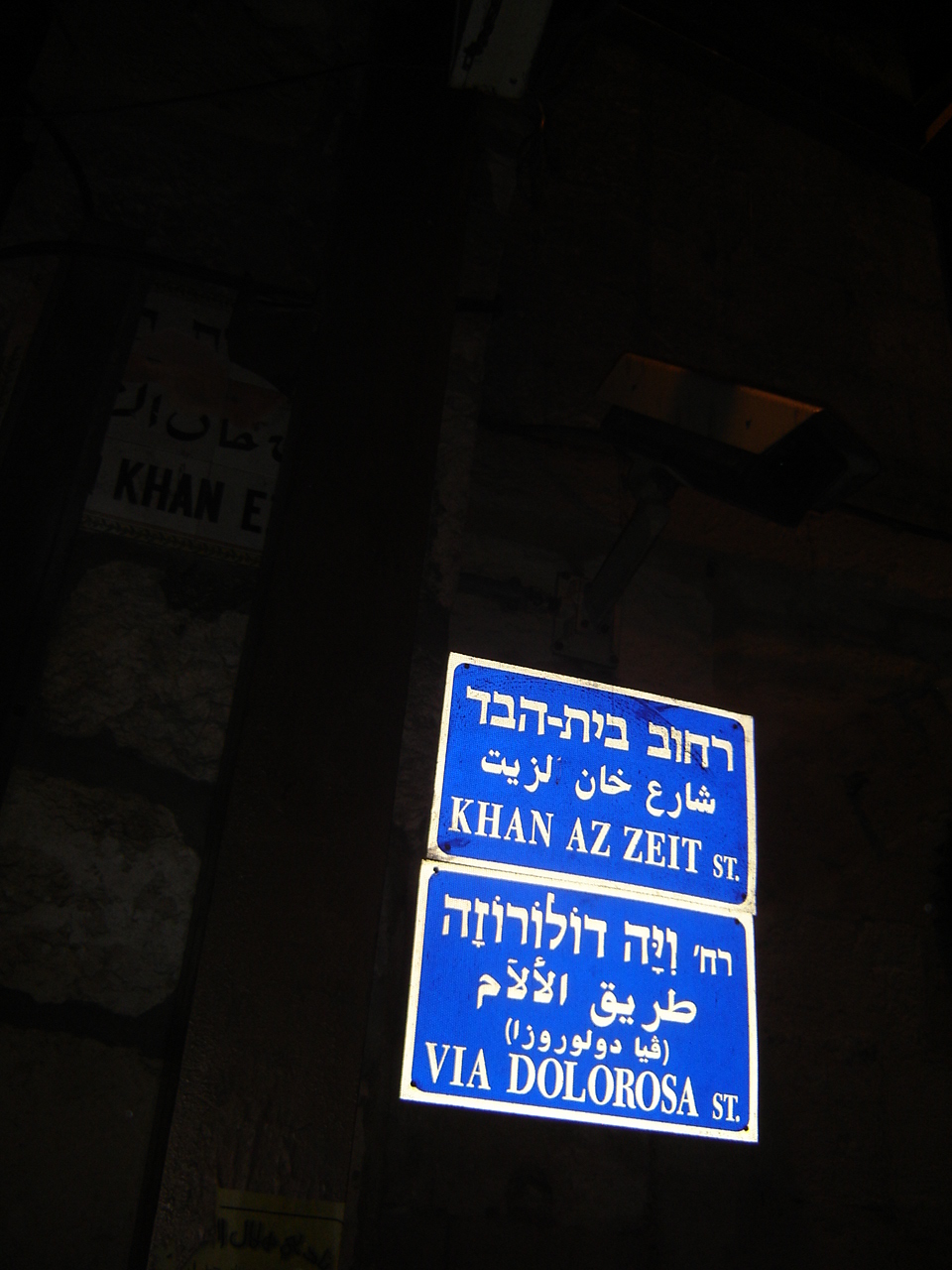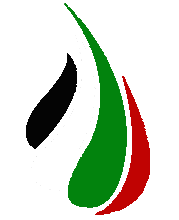The sheep of Eid Al Adha !!!!
29.12.06
14.12.06
Only in Palestine, Iron Gates on the Roads
An iron gate on the road between Nablus and Tulkarm in Palestine. The gate was placed by the Israeli Army to close the road. The Israeli army used many methods to restrict the movements of Palestinians including iron gates on the roads, checkpoints, trenches, concrete blocks and others.
After closing the road by the gate, people had to leave their cars and buses at one side of the gate and wlk to the other side to take other cars and buses waiting them there.
In this pic you can see the gate and the cars on both sides.
A place mark to the site on GE can be found at This Site
I do not think in any other place in the world you will see an iron gate on the road !!
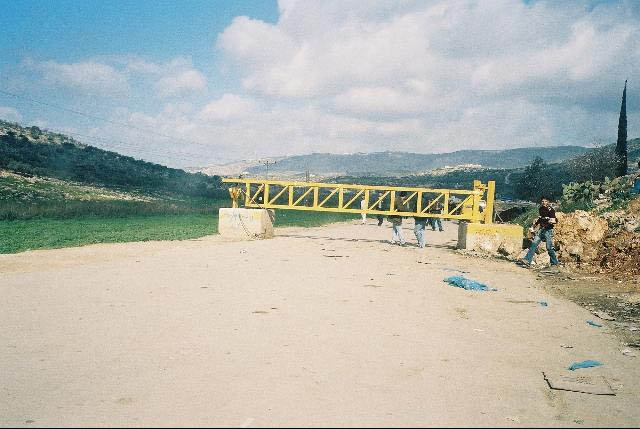

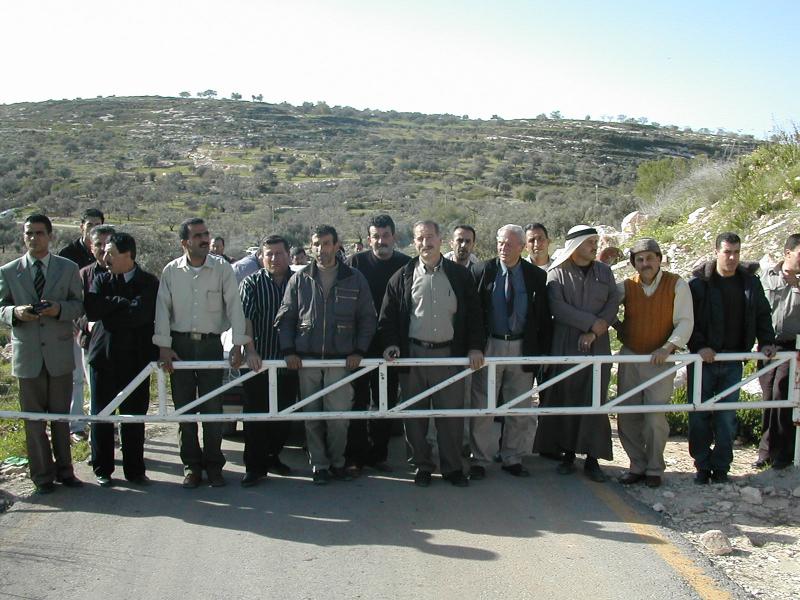

10.12.06
Aerial Photo of the village Fandaqomiyah
An aerial photo of the village Fandaqomiyah in Jenin, Palestine taken at altitude 390 meters in a sunny summer day.
5.12.06
12.11.06
8 Bullets! Weapons training for PA security forces

11.11.06
“The soldiers humiliate me. My husband beats me”
 62% of palestinian women reported that they were victims of psychological violence during the year 2005.
62% of palestinian women reported that they were victims of psychological violence during the year 2005.
---------------------------------------------------------------------------------------------
 24% of married women in the West Bank and Gaza had been victims of domestic violence in the year 2005.
24% of married women in the West Bank and Gaza had been victims of domestic violence in the year 2005.
-------------------------------------------------------------------------------------------
 36% said that their husbands threatened and intimidated them into submission.
36% said that their husbands threatened and intimidated them into submission.
------------------------------------------------------------------------------------------
 52% of Palestinian mothers believed that at least one of their children (aged five to 17) was exposed to violence.
52% of Palestinian mothers believed that at least one of their children (aged five to 17) was exposed to violence.
------------------------------------------------------------------------------------------
 18% reported that their husbands beat them to have sex.
18% reported that their husbands beat them to have sex.
---------------------------------------------------------------------------------------------
 47% of Palestinian women reported that their husbands used “force and brutality” during sexual intercourse.
47% of Palestinian women reported that their husbands used “force and brutality” during sexual intercourse. These are some shocking figures from the latest report by Human Rights Watch on the status of Palestinian women in the year 2005: A Question of Security: Violence against Palestinian Women and Girls
At a time when the Palestinian people are suffering from the Israeli occupation which inflects its abuse and violence on both males and females, young and old, it is heart breaking to find out that the majority of Palestinian women and children are facing even more abuse at the hands of those who are supposed to exchange with them love and care.
We the Palestinian are a nation fond of romanticizing our women and idealizing their role in the miraculous rebirth of our nation and its survival under the sun. Our poets wrote poems of the ever loving, ever watchful Palestinian woman on whose shoulder leans the wounded fighter and from whose hands drinks the thirsty prisoner. To us the Palestinian woman represents the Palestinian land and vise versa.
But it is an image that conceals behind it a dark reality of abuse of this woman whose full share in the fighting and suffering did not shelter her from the chronic chauvinistic ills of the Arabic culture.
It seems that not only the Israeli occupation we have to liberate ourselves from. We have our own inner circles of occupation that need as much fighting and struggle. What joy will we have in the freedom of our lands if then we leave the souls of our mothers and sisters occupied by fear and humiliation?
29.10.06
Palestine is Finally Online !
 The first of its kind comprehensive online map of Palestine is now available at the web site Palestine Remembered. Thanks to Salah Mansor, the Palestine Remembered director.
The first of its kind comprehensive online map of Palestine is now available at the web site Palestine Remembered. Thanks to Salah Mansor, the Palestine Remembered director. - Most comprehensive listing of all destroyed and ethnically cleansed towns.
- All of West Bank's and Gaza Strip's cities, villages, and refugee camps.
- All existing Palestinian town (including the unrecognized villages) inside Israel (Palestine-1948).
- Most the exclusive Jewish colonies (inclusive of West Bank colonies).
- The mass majority for the destroyed villages' coordinates were provided By Dr. Salman Abu Sitta based based on coordinates collected by the British Mandate in 1923.
- Israeli towns (including West Bank's exclusive Jewish colonies) were all identified from information available in the public domain, mostly from CIA maps & World Gazetteer.
- All military installation were identified from information available in the public domain, mostly from CIA maps plus al-Safir newspaper finding.
12.10.06
Hate-Mania
- "Yes, Thameen, I hate Islam because it is in direct conflict with my religion"
- "A day will come when we will slaughter the people of Denmark and smash their heads"
These two comments are just a sample of what I have been seeing and receiving in my email and on the net for a long time, but recently I became more and more aware of the amount and depth of hate that is directly associated with religious motives.
The first remark I got while I was discussing Islam's stand of certain issues with a 'nice' Christian woman from Colorado who runs an active blog . I do not usually dive into religious dialogues, but in her post she stained the Muslim culture as 'a culture that stones women' and other typical stuff that you will expect from a conservative from Colorado. But her being a nice woman with a nice blog I responded to her trying to urge her to be more open to the diversity and beautiful aspects of the Muslim experience. At one point in our discussion she was honest enough to declare her true feelings: 'Yes I hate Islam because it is in direct conflict with my religion". You can see my correspondence with her here 1 and 2 and 3
The other statement above I received in an email from a relative who is also a 'nice' Muslim woman. The email contained a poster allegedly depicting a LEGO toy showing the Prophet in a humiliating posture, the poster claims the toy to be made in Denmark. Though it is clear that this poster is fake, the email contained a prayer to "slaughter all the Danes and smash their heads". I politely responded to her that she should not be propagating hate on the internet. That was not a confused teenager but a mature educated professional person.
But as I think about these incidents and the whole multitude of what is going around us I wonder about this amount of hate that is being nurtured within religious feelings. All religious people of all religions will tell you that religion is basically about love and understanding, but this does not seem to be the case nowadays. It seems to me that many 'religious' people are giving themselves a lot of liberty in producing hate and distributing it. This is a very disappointing thing, and dangerous too. This hate is translated at many times into cruel actions and insane policies.
I think hate is a form of human failure. Hate is the fruit of fear and ignorance. It is not a comfortable thing to hate, so people who harbor hate tend to find conduits for it and thus you see people hating in the name of ideal things. Some hate in the name of religion, some in the name of pure race, others in the name of liberty. Whatever the conduit one chooses for nurturing hate, it can not beautify or legitimize hate, it can only ruin the conduit.
Hate lives in the dark corners of the human soul where it grows into a powerful monster that can lead humans into the most cruel acts and into adopting the most unjust positions. It is only thought light that hate can be eradicated from the corners of our soul. The light of knowledge, of reason and opining our minds and hearts to understanding the others. It is the powerful light of faith, the faith in an all loving God.
-------------------------------------------
NB. After posting this piece I read in the news that the Pope has just made a statement in which he asked that religion should not be used as a pretext for hate. I’m thinking of suing the Pope on copyright grounds :)
6.10.06
Prophet Muhammad on Google Earth, 1000+ Downloads
You can download the layer from here. If you do not have Google earth you can get it from here.
Islam is the second largest religion in the world; it was founded by Muhammad who was born in a town in the Arabian Peninsula, Mecca. He lived for 63 years (570-633 AD). During his lifetime, he founded the third monotheistic religion, established the core of the Muslim empire, and started a new era in Human history with its own distinctive civilization that is still alive today.
Fortunately, and unlike most other prophets of ancient times, the life of Prophet Muhammad is very well documented in great detail. It also encompasses a huge geographical area and most of the places where the prophet lived or visited are well known up to our very day. Thus I thought it is worth being illustrated on Google Earth.
This flyover contains around 110 place marks marking the geographical places where the main events of the Prophet's life happened. For those without prior knowledge of the life of Prophet Muhammad, the story told in this flyover gives a summarized and quick introduction to the life of one of the persons who had great influence on the course of humanity. For whose familiar with the life of the Prophet, this flyover gives them a new look at the life of the prophet in its geographical context.
This is a huge task that I embarked on. More additions are needed. I have put the main 110 pacemakers; however, I estimate that we can locate up to 1000 places directly connected to the life of the Prophet.
Want to help improve this project? Are you familiar with the terrain in Saudi Arabia or have a good knowledge of the life of the Prophet, You can do the following:
1.Give feedback regarding the places in this flyover correcting any misplaced place mark.
2.Correct any factual errors in the story told in the place marks content.
3.Help locate new places connected to the life of the prophet.
Your contribution is appreciated. Let’s work on this project and expand it with all the places related to the life of Prophet Muhammad. I hope this flyover will be a great educational tool and an opportunity of understanding.
For those wanting to contribute who know Arabic, There is a great website that contains all the major books on the life of the prophet including “Sirat Ibn Hisham”, and a list of all the geographical places that we intend to include in this project. It is a great start. Here is the site A great source for Arabic speakers
For English speaking persons, I will recommend the wikipedia article on Muhammad. The article gives a simple introduction. If you want more comprehensive resources, see the external links in the bottom of the article.
Technical notes:
.In dealing with sensitive issues in the life of the Prophet which are religiously or politically charged, neutral language was used as much as possible.
.The geographical locations and the narrative were based mainly on the book “Sirat Ibn Hisham” which is the most credible book on the life of the Prophet.
Jesus and Palestine
In his novel Ulysses, James Joyce knows how to counter punch the anti-Semites who harass the fictional character Leopold Bloom. When under verbal assault by the anti-Semitic citizen in Barney Kiernan's pub Bloom reminds the Christian anti-Semite that [“And Jesus was a Jew too. Your god He was a Jew like me”]. It is true, but Bloom meant it to be an offense to those who degraded the Jews.
Some Palestinians, mostly the Christian Palestinians, would like to claim their Jesus as the being Palestinian. I believe that every one has the right to claim his/her Jesus in the way she/he imagines him, the Chinese Christians’ icons display Jesus as a Chinese and that’s pretty fine. Also in the large context that Palestine is one of the many names of the land and the name preferred by the non Jewish natives since antiquity, then this claim is correct if it means that Jesus was born in this land that we later called Palestine. However, some time this claim is pregnant with polarized motives, and that does not do justice to the legacy of Jesus who transcends geographical and national debates.
It is not so important where Jesus came from; it’s what he became what is important. To me Jesus is beyond labels. As a Palestinian I to feel that labels do not do me justice. Even the name Palestinian is a label that has its historical and political limits. We are the natives of this land that I do not know what its exact name is, and that is all what I care about.
As a Palestinian I do not need to claim that Jesus was a Palestinian. He was from my land, I feel so close to him physically and spiritually because of that. I live close to where he was born and closer to where he lived and on the same hills he walked on. Every thing around here reminds me of him, the horizon, the lilies, the springs, the shepherds and of course the sky. We share a lot of things in common. Whether he was a Palestinian or whether I am a Palestinian makes no difference.
In this context I was thinking about him and I realized that Jesus was indeed the main factor why the names Palestine lived till our very day. Jesus was born to a family Jewish in ethnicity and religion. Politically he was born into the Judea province of the Roman Empire.
The land of Jesus, my land, was called by different names according to the different nations who had the final say in political domains. The land of Canaan by the Canaanites and the Egyptian Empire. The Land of Israel by the Jewish tribes. The name Phoenicia also extended to it. The Philistines lived in the south Mediterranean and their areas was the Philistine Lands, to mention only few names.
But it was actually the Romans who called it Palestine in 135 AD, the name that became international and the name I find myself identified with now after two millennia. Of course the name must have been in use by the locals before the Romans came, since Romans did not invent it from the scratch. The Roman used the name already in use by non Jewish natives in an attempt to further suppress the Jewish presence in the land after the crush of their final revolt. After the Roman conquest, the natives became citizens of the Palestine Province of the Glorious Roman Empire. Jesus the man was born in Judea, but Jesus the legend was evolving into the now Palestine.
It is very interesting to see that the word Philistine/Palestine was still alive at the time of the Romans, since the Philistines were extinct as a nation eight centuries before the arrival of the Romans. It seems that the name was still in use among non Jewish natives up to the Roman times.
The Romans brought the name Palestine to their political records. However it was the Christian Church that incorporated the name Palestine into its early literature and pushed it into its lasting international fame. Most other Roman province names vanished after the fall of Rome and rebounded back to other native names. However the name Palestine lived as part of the legacy of Jesus. So it was one of its citizens, Jesus, who made the name of this province last for ever.
Was it not for Jesus, we may now be called Canaanites again and our land will be the Land of Canaan. Though I like the name Canaan, but here is another thing we have to thank Jesus for, the very name of Palestine.
I’m happy to have discovered another thing in common between us. Jesus, the Lord for one third of humanity, Word and Spirit of God for another third, the Love Messenger for the remaining third, was indeed behind the solidification and propagation of the name Palestine.
But this is a minor thing, as He was behind the solidification and propagation of ideals like justice, love and truth, things that we are in dire need for, both Palestinians and others in this land, the land of Jesus, to use its most beautiful name.
5.10.06
Palestinians, No Comment
البحر و الجدار
 رأيت اليوم صورة بحر، بحر ما في مكان ما، فتذكرت أني لم أر البحر منذ زمن بعيد، لا ادري منذ كم سنة بالتحديد، فالناس هنا لا يعدون الزمن بالسنوات بل بالأشياء و الثورات و الشهداء و الثلج.
رأيت اليوم صورة بحر، بحر ما في مكان ما، فتذكرت أني لم أر البحر منذ زمن بعيد، لا ادري منذ كم سنة بالتحديد، فالناس هنا لا يعدون الزمن بالسنوات بل بالأشياء و الثورات و الشهداء و الثلج.يقولون كان كذا يوم الثلجة و يوم الهزة و كان كذا يوم الثورة السادسة او العاشرة و حدث كذا يوم استشهد فلان أو جرح علان.
أنا زرت البحر أخر مرة قبل أول انتفاضة في حياتي و بعد الثلجة الثانية و كنت صغيرا و للبحر على الصغار تأثير سحري خاصة إذا كانوا مثلي و كان البحر مثل بحرنا.
البحر بعيد عني عشرة أميال إلى الغرب، و ثمان و خمسين سنة إلى الوراء. بيني و بين البحر سهل واحد و جبلان. و ألف حاجز و ألف بندقية و شعب لا افهم لغته و لا يفهم لغتي و مئات الثورات و الحروب و الزعماء و المفاوضات. بيني و بين البحر عشر قرى ما زال فيها ضحكات أطفال. و خمس مئة قرية مدمرة و عشرون مخيما و جدار.
البحر موجود و أنا متأكد من ذلك، تأتيني منه نسائم و نوارس، تتكسر النسائم على الشرفات المفتوحة على الغرب و الجراح و ترحل النوارس إلى الشمال في الشتاء. أما أنا فلا احد يأخذني إلى البحر.
منذ سنة لم تعد تأتينا نسائم و لا نوارس فهم قد بنوا جدارا عالياً بيني و بين البحر، ولكني أستطيع إذا ما صعدت الى أعلى جبل في القرية أن أشم رائحة البحر، او ما اعتقد أنها رائحة البحر.
مرة طلعت الى الجبل لأشم رائحة البحر و كانت السماء صافية جداً و رأيت عند الغروب شيء يلمع و قال لي رجل كان هناك إن هذا هو البحر و ما كنت لأصدق لولا أن هذا الرجل كان درويشا يعيش في الجبال كل وقته و هو عارف بأمر الجبال و اللمعان و كثير من الأسرار الاخرى. و كنت أتساءل لماذا يعيش هذا الرجل في صومعته على قمة الجبل بعيداً عن البشر. أمثلي عاشق للبحر هو؟ لقد كنت اغبطه على أية حال لأنه يعيش في هواء البحر و يرى لمعانه كل غروب.
بعد الانتفاضة الثانية بنوا مستوطنة على الجبل و صاروا يطلقون النار على كل من يصعد إلى الجبل ليشم رائحة البحر او يرعى الغنم او يجمع الزعتر. و لم اعد أشم رائحة البحر.
أريد ان اذهب الى البحر، الملح يتعطش في دمي و قدماي تنمنمان، أريد أن امشي على الرمل و أن اسبح، هل سيكون ماؤه دافئ أم بارداً ، لا اذكر لكني اذكر بعض التفاصيل، ذلك الزبد الابيض، الصدفات العادية التي لا يكترث لها احد و اعتبرها أنا كنزاً، الرمل المبلل، و رائحة البحر – يا لرائحة البحر! وذلك الحزن المتوحش يفيض من البحر و يغسلني و ينتشر في كل مكان، ثم ذلك الشعور بالفقدان. ظلال رائحة ازهار برتقال، لم يعد هناك برتقال لكني كنت أشمها. و من البحر يخرج ألاف الأشباح لأناس يحملون أمتعتهم و ملابسهم و يرحلون من البحر الى اللامكان.
كان البحر يحزنني لكني كنت اذهب اليه. قال لي احدهم انه يشعر بالذنب إذ يذهب الى البحر مستمتعا به و لذا ما عاد يذهب. لكني أنا سوف اذهب الى البحر ... و احزن.
و لكن كيف السبيل، الجدار عال و الجنود متربصون.
ربما بعد هذه الانتفاضة ، ربما يكون سلاما يوما ما، ربما احفر نفقا تحت الجدار كما يفعلون في غزة، لكن الأرض هنا صخرية ليست كرمال غزة و أنا وحدي لن أجد من يشاركني في حفر نفق من اجل البحر!
حتى ذلك الوقت سأرسم بحرا على الجدار بزبد و أصداف عادية و رمل مبلل، ربما ارسم أيضا جبلا تفوح عليه رائحة البحر
لكن علي أن أجد مكاناً فارغاً على الجدار لأرسم عليه، فرغم أن الرسم على الجدار عمل خطر و أنت معرض لإطلاق النار من الجنود، إلا انك لا تجد مكانا فارغا عليه فقد رسم الناس كلهم – الأطفال و الكبار و الشيوخ – عليه كل شيء. السماء و الزهور و الحرية و الأشجار و الوديان و صور لأشخاص ذهبوا. رسموا كل شئ أحبوه خلف الجدار، و أنا أحب البحر و لابد أن أجد متسعا لرسم البحر على الجدار.
4.10.06
ازرع قلبك في وطنك
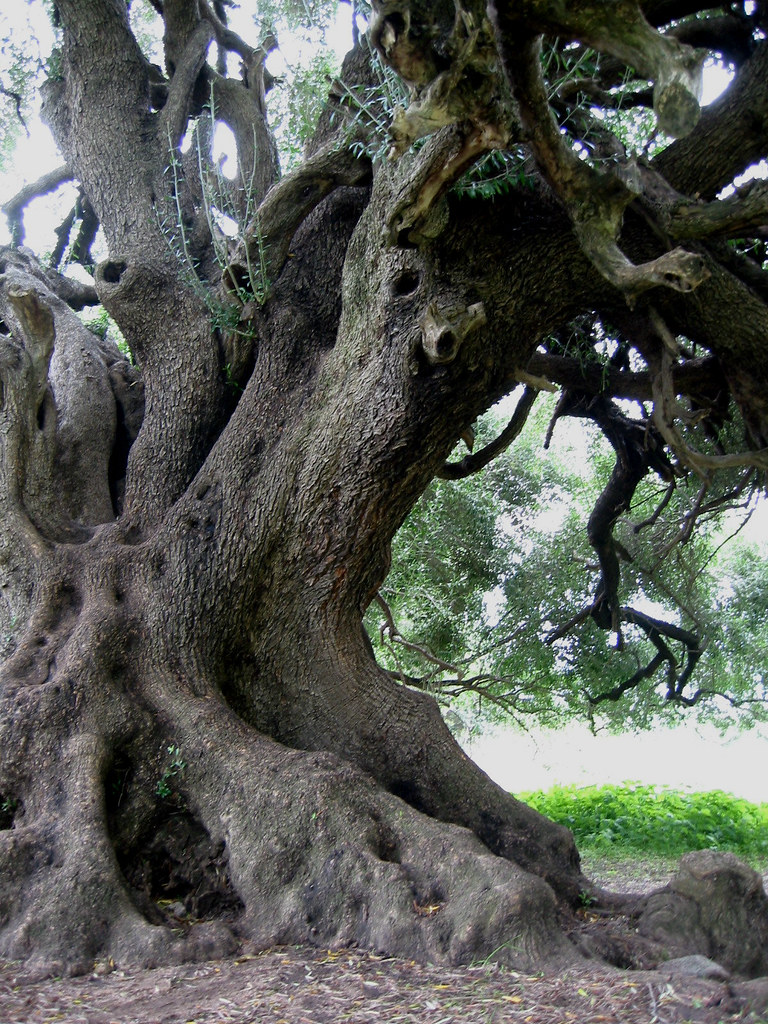 ازرع قلبك في وطنك
ازرع قلبك في وطنكينبت عشباً و سنابل
ووروداً حمراً و عبيراً
يعرف وطنك راحتك
يعرف رنة أقدامك
و دمك إذا سال غزيراً
ازرع قلبك في وطنك
و امسح دمعات خدوده
و احمي بدماك حدوده
و ارفض ان يحيا كسيراً
عش معه و ارحل معه
غني لسامعه و إسمعه
و انظر كم يبدو مثيراً

ازرع قلبك في وطنك
و ازرع وطنك في قلبك
ضم إليك ترابه
خذه يغتسل بأحداقك
ابني بيتك بحجارة واديه
و البس من نسج أياديه
في صباح جميل كهذا
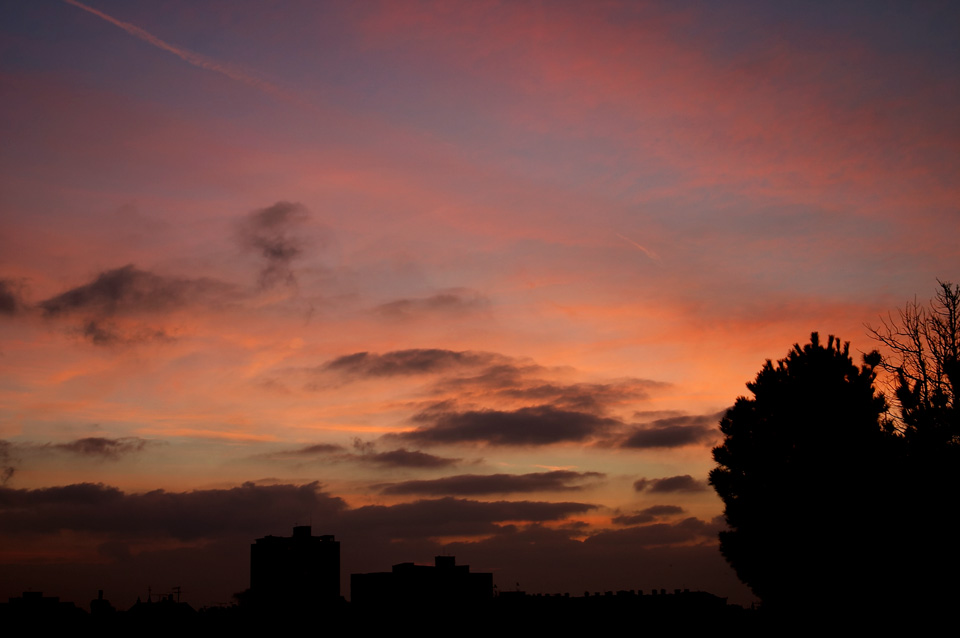 في صباح جميل كهذا
في صباح جميل كهذايفيض الهواء رؤىً
و دفءً و بوحاً
و أيدٍ خفية
تمسح خد الضياء
يفوح النسيم
عشقاً و
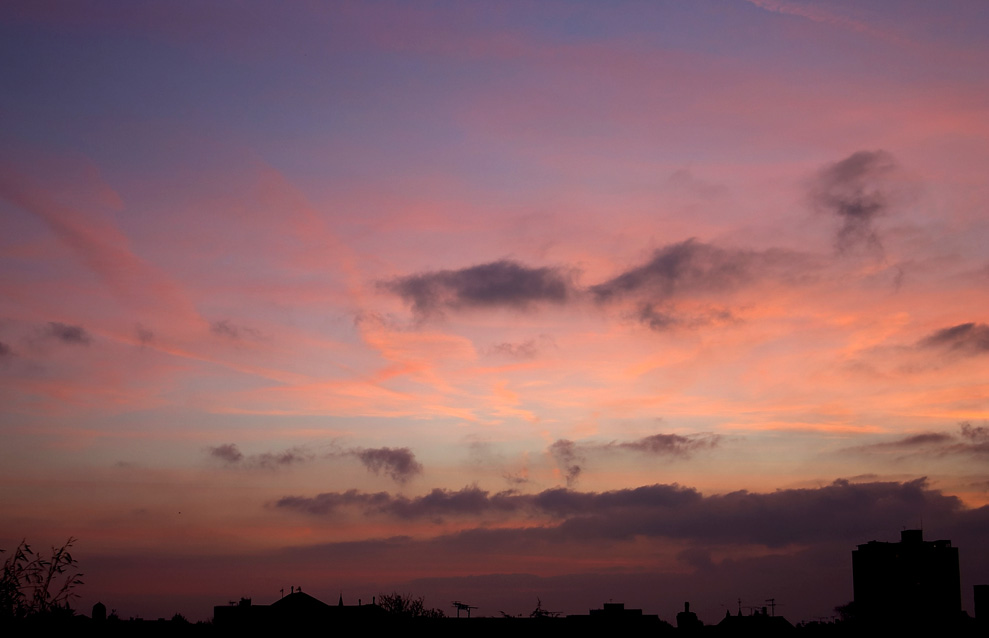 نشوة
نشوةو حلماً يزيد الحياة بهاء
تغني الطيور
لعزف البلابل
و رقص الزهور
يضج النشيد
و بين الأرض و بين السماء
يولد حب جديد
في صباح جميل كهذا
تحط الظلال على راحتي
لترسم قلبي نشيداً و فتنة
تطفح كاسي
بعض الحب و أغدو يمامة
أرسم غيما بين الأثير
ازرع فرحي فوق غمامة
و اهرب مني لحلم بعيد
و بين إرتعاشي و فيض اندهاشي
يولد طفل جديد
My Foot Steps Upon the World !

This is cool ... It seems that I have not been moving around much, better start preparing the bags.
The website that generated this map has many other cool and creative projects. Link is below
create your own visited countries map
3.10.06
Love Kids?
Palestinian Smile
2.10.06
Fighting to be Human and Humane
From my Diary October 2001:
The last two weeks our village was under siege so I did not go to work, I helped my big family collect olives and squeeze the olives to get oil. This is a great fun to do; it reminded me of my childhood days. As we gather around, under and a top each tree, we find the chance to discover one other again and enjoy the simple ways of life. Some villagers were short of flour and other necessary things, but others collected things for them and people shared things. One horrible day the settlers from the settlement behind the hill tried to attack our village and created an atmosphere of terror. Every single kid was crying, and you can hear the scared people shutting their doors and windows and running in all directions.
My brother and me escaped to a little room that we used to store our olive oil in and waited there while my mother and sister stayed upstairs. I was dead worried about my family, and that night felt the weakness, violation and vulnerability of my whole nation concentrated, bitter and painful. In middle of the terrible situation we are passing through, it becomes most difficult for us, we the younger generation of Palestine, to stick to our ideals and dreams. It is extremely horrible to feel violated, weak, vulnerable, and left alone. It is something that can make a deep crack in your basic beliefs in life and love. I'm one of the persons who believed in love as the basic law of life, I believed in the human brotherhood and in the unquestionable human rights. At a certain point in my life I believed that humanity is at last making its steps towards the dawn of freedom and peace. In this time, we are not only fighting to keep alive, but also to stick to our ideals and principles.
While we are being violated and killed as though we are no more humans, and while the world shut their eyes in a horrible silent approval, it becomes difficult to prove to yourself that you are really a human being. We are facing a reality that is not very much advanced than the Stone Age era, where the stronger gets the lion share, and the weaker is killed and condemned. At such a situation, it needs an exceptional type of persons to believe in the ideals of the civilized human being, if there is such a thing yet.
At many moments of despair I was at the edge of exploding of anger, shock and disbelief. What should I do, is this the reality or an ugly nightmare, I was asking myself. My imaginary powers to fantasize, minimize, or suppress the horrible situation collapsed and I was shattered by the black cold reality. Yes it is real and it is happening to me and to my dear ones. Should I tie an explosive belt around my waist and go explode my anger, misery and 100 years-long pain in their streets like many of my generation did?
I will be forever thankful to God who carried me on His love breezes away from it, for giving me the faith when I needed it, lifted me up when I was injured and showed me His thin strong ray of hope that kept my soul parts together, and showed me that my role is to work hard within my small circle of influence in the spirit of unbreakable love.
Yesterday it rained for the first time this winter. You can not imagine how glorious, romantic and touching the first rain on our green sad hills is. I stood at the widow, watching a gray poor cat that had lost one of her eyes at some sort of battle or incident; she was shivering, trying to find a shelter. I wished if I could take her in my arms. The soft rain drops on the glass were so tender and gentle that they moved in my soul a warn wave of passion and love, in a moment of purity I remembered all the lost smiles and dreams, the cries, tears and sorrow, and wanted to cry. I have a dream, so dear, so intimate and magically beautiful. Isn't it great to fight for that dream? Isn't it great to live for it? I hope, in some spiritual way, that you can be with me to know that yes, it is so honorable and great.
I Was There Too
I'm not there now; the screaming mouths are just a fading image in my memory. My hands are clear, no red blood; I look at my hands to make sure. But after this long time, I still smell that smell of a fresh wound.
I went on and traveled to distant places and times away from that ER. Why it that every door opens is creates a child in my heart? Why do I always expect the opening door to reveal a shot young man carrying a shot kid?
I did night calls too much that I can not count, but why is it now each time the phone rings my hand tremble and I expect a call with those frightening background voices.
I was there long ago, but they are still there. I switch on the TV and I see the snipers and the kids, the anti-tank missiles. I see the blood climbing to my hands, the smell filling the room, I see ER doors opening wide and young doctors rushing. They look solid, but I know that their hands just trembled when they heard those background voices.
I'm not there any more, but it is still going on. How then can I get it out of my mind!
Three Morning Flowers
Disappointed by the plastic faces, the kids chanted "falsteen7urra-Palestine is free" and ran away with bent backs, panic tiny voices and hands covering their heads as though being under heavy shooting. The three soldiers kept frozen with a mask face. Not smiling nor shouting or even looking at each other. At that very moment I wanted to join these litt leboys, but more I wished I could know what did those three soldiers, in that dreamy morning, thought of.
This is why I have hope. I'm praying that the day will come when our aggressors will defeat the inhuman mentality that occupies their minds, the day when they can, instead of pointing a 500 mm automatic gun towards three morning flowers, smile to them.
لي في الحياة صديق
شخصان نحن بذات الجسد
وسيم الثنايا وديع الكلام
نسمة صيف إذا ما هدا
ريح العصف إذا ما أبى
يحب البلاد فلسطين دوماً
رءوف بأم حنون الطباع
شقيق لوردة دفلى جميلة
بعيد كثيرا و أشتاق له
له في بلاد الأهل أحبة
تعال إلينا طال الفراق
صور
الحب كاليل مراة مكسرة
من وجهها يسّاقط المطر
تتسلق الذكرى جوانبه
و ينمو تحت رموشه القمر
الحب كالنصل مذبحتي و مشنقتي
عار وقفت ببابه ابكي
ورجوت ان يرمي الي هوا
لكن باب الحب لا يحكي
الحب كالنهد مزرعة مخضّبة
يتفتق الاحلام في الشهوة
يتولد الرغبات في صمت
عيناه طافحتان بالنشوة
الحب كالصحراء غربتنا و منفانا
اسير نحو سرابه املاً
بعوالم اخرى احط بها
فاضيع بين رماله ثملاً
الحب كالدمع زنبقة محطمة
فاضت باّلام الجوى فيها
تلتف حول جراحها اسفا
و انا الملمها و احميها
الحب كالنار صومعتي و قنديلي
زيتونتي الحبلى باسراري
خبات فيها كل امتعتي
و اضأت منها كل اقماري
الحب كالورد غيمات و اشواك
معروضة اطيابه لفمي
لما مددت يدي اداعبه
ادمى يدي ثم ارتوى بدمي
الحب كالحلم اعشاب و اوراق
تمتد بين الظل و الظل
لما غفوت على وسادتها
مالت الي اشباح و اشواق
الحب كاللحن اطيار و امطار
يعيش في عشب المزاريب
اطعمته يوما رغيف ندى
فسال منه اوتار و انهار
منَّ الإله
مَنَّ الإله المنعم المتعظم --- الواهب الفضل الذي يتكرم
بشرى الربيع الغض كمّلها لنا --- بميلاد زينة حلوة تتبسم
أهدى إلينا في الحياة يمامة --- جاءت كأحلى طائر يترنم
نيسان شهر الحسن أضحى أجمل --- و صار فيه حلاوة و تنعّم
لما بزينة جاء يضحك باسماً --- أحلى البنات بحسنها يتكلوا
يا زينة الأسماء اسمك جامع --- جميع معنى اللطف فيه منظم
الزاي زنبقة الحقول تفتحت ---أرق ما يحكي الربيع و يرسم
و الياء يسمين يتوجه الندى --- البيت فواّح بعطره مفعم
والنون نرجسة الجبال الناعسة --- غنّى المحب لسحرها و المغرم
هذا أبوك بكل شكر شادياً --- و أم لأسماء الإله تعَّظِم
فلتعلمي يا حلوتي إن الجذور --- إن هي تشّربت المحبة تسلم
و حقل اهلك بالمحبة وافر --- قد اخلصوا و تعاطفوا و تراحموا
من يزرع الوردات يحصد مثلها --- مِنْ بذر حُبٍ كان زرعك سالم
نعم العشيرة دام اهلك حولك --- هم طيبون منافحون أكارم
لك في العمومة يوسف النجم المنير --- هو في السماء كما تكون الأنجم
من حوله قمر ينير لك الدجى .... ابدا شروقه دائم لا يعتم
كونوا على طول الحياة بنعمة --- و ليسبغ الله الهناء عليكم
و مبارك ميلاد زينة فيكم --- وبعمرها فلتسعدوا و لتنعموا
ربيع بدون روان
روان وردتي من بين كل الورود
احبك كل الحب الذي في الوجود
و أكثر....
روان جاء الربيع علينا
و جاءت كل الورود الجميلة
و كل العصافير الصغيرة جاءت
و لم يجدوك عِنّا
فأنت بعيدة خلف الحدود
أيُّ ربيع بدون روان
ربيع كئيب حزين
ربيع يأتي بغير أوان
روان تعالي إلينا
نموت اشتياقا إليك
أمي تسال عنك كثيراً
ترى هل كبُرتِ؟
ترى هل صرتِ أطول؟
تعالي نراك و نفرح
***
روان الحبيبة هل تذكرين
البلاد الجميلة،
و اهلك فيها؟
هل تذكرين
كيف صعدنا فوق الجبال
و كيف قطعنا العهود
لشجرة خروب الأماني العجيبة
هل تذكرين
كم تخاصمنا في الليالي
وتصالحنا في النهار
و كيف فعلنا
أشياء أخرى غريبة
كيف جمعنا عظام الوحوش
و كيف دخلنا الكهوف الرهيبة
و كم باقة زهر جمعنا
و كم من الأصدقاء عرفنا
و كم أسعدنا ستو الحبيبة
***
تعالي إلينا جاء الربيع
و أنت النسيم
و كيف يكون ربيع بدون نسيم ؟
و أنت عصفورٌ ملون
و كيف يكون ربيع بدون عصفورٍ ملون؟
هذي السنة قال الربيع
لن آتي بدون نسيم و عصفورٍ ملون
فقال الناس: أي نسيم و أي عصفور ملون؟
قال: روان النسيم و عصفوري الملون
و لن آتي بدون روان
و الناس زعلانون جداً
و يبكون دوماً
لان الربيع تأخر
و يأتون عنا و يرجون أمي:
خلّي روان تأتي سريعاً
لان الربيع تأخر
حرام عليك
تعالي إلينا سريعاً سريعاً
فأنت لطيفة و لا تقبلي
أن لا يجئ ربيع علينا
أو يتأخر
تعالي
فنحن نحبك كل الحب الذي في الوجود
و أكثر ....
زينة ملكات الإنسان
في نيسان
لما كل الورد تفتح
وكل فراشات الحقل صار لها ألوان
وفرخ العصفور صار له جنحان
و صار ربيع
مكتمل كرسوم الفنان
قلنا ليس بعد بهاء الأرض بهاء
فتبسم نيسان
و لما يتبسم نيسان
تمتلئ الأرض سناء
و تفيض بحور الألحان
نيسان يخبئ شيء ما
او أشياء !!
فتح حقيبته الخضراء
فطارت منها آلاف الغيمات
و آلاف الأحلام
و آلاف فراشات حمراء و صفراء
تحمل مركبة من مرجان
فيها جاءتنا من خلف سماء
زينة ملكات الإنسان
و أميرة حسناوات الجان
لها وجه ملاك
كونه الله من المرمر
و أنامل من عود و لبان
و شفاه من كرز احمر
و عنق من أرز اللبنان
و عيون – آه لعيونك يا ملاكي-
صبت من ماء السكر
صافية كجواهر رمّان
خدودك كالتفاح البريّ طرية
خجلى كشقائق نعمان
صوت يتناغى بعفوية
أجمل ما نسمع من ألحان
سبحان المبدع ما أحلى زينة
أحلى ما جاء به نيسان
مذ كان هناك ربيع
و كان زمان
قصة عصفور عربي
عصفور طلّ على الوطن
يستكشف احوال العربِ
شاهد انهاراً و مروجاً
و حقولاً من قمح الذهبِ
و جداول تنضح بالخير
و مروجا من كرم العنبِ
شاهد الاف البلدان
و شعوبنا تنمو كالقصبِ
راعته الوفرة و الكثرة
و تفاخر بين الناس و قال:
عربي قد كان ابي
و أصيل الجدّ انا عربي
سازور بلادي العربية
ارض الحرية و الادب
طار العصفور العربي
كان البدء بارض النيل
شعب معطاء و اصيل
منذ الخلق يكوّن مَجْداً
و فنونا من كل جميل
اختٌ للعرب كبيرة
درعْ للامة و الجيل
شاهد علما في القاهرة
خطين كدجلة و النيل
قال: العلم الازق لكم؟
قالو نجمة اسرائيل
صعق العصفور المحزون
و بكى هابيل وقابيل
كيف الاخ يقتّل لحمه
و يساوم حقا لقتيل؟
و بكى رمسيس و امون
عربات و الخيل أصيل
كانت ترعب قلب الغاصب
و تُحامي عن ارض خليل
و جحافل للظاهر بيبرس
فاضت حتى ارض جليل
و بكى عمر بن العاص
و ارضا ضيعها التدويل
و بكى و بكى و بكى
سار لارض في اليمن
اصل العربية و الوطن
حلق فوق جبال خضر
و تمشى في كل المدن
يبحث عن غابة قهوة
تنبت في نهر اللبن
يبحث عن عود و لبان
و طيوب غالية الثمن
لم ير غير الفقر يباع
في اكواخ من شجن
و العصبية تُؤْكل خبزاً
و سنابل جفت من وهن
و القمح بكيس مستوردْ
بكى العصفور على اليمن
قد نسي معين و بلقيس
مجداً كان لذي يزن
اواه عليك ايا يمن
يقتات القاتُ على زمن
لا يخرج من تحت الزمن
فوق الكثبان الذهبية
طار العصفور الطيارْ
صحراء العرب الازلية
صامتة في عز ووقارْ
راعته ثقوب في الارض
ابارٌ ابارٌ ابارْ
قالوا هذا الذهب الاسود
ثروات من تحت قرارْ
حمد الرب لهذا الفضل
و تمشى في مدنٍ وقفارْ
فراى قصراً من ذهبٍ
مسبوك من جوهر و محار
و فواكه من كل الالوان
و جوارٍ من كل الاقطارْ
و راى جنبه كوخا هشا
و فقيرا يفترش الاحجار
يقتات على زغب الارض
يلعن تييك الاقدار
ان جعلته بلا حسب
في ارض الاشياخ الاكثارْ
و راى رجلا يحمل سوطا
يحكي عن اهوال النار
يحلم في اربع زوجات
و زواج المتعة و المسيار
و يرجم بنتا قد بانت
شعرات منها بنهار
و راى رجلا مصلوبا
قالوا غدارٌ كفارْ
وجدوه يناجي حرية
يقبلها من غير ازار
هاجت في الطير الاشواقْ
يمم نحو بلاد عراقْ
بلاد الخصب المحظية
و عيون الشهد الدفاقْ
بلاد الصفصاف الاخضر
و الخير المصبوب المهراقْ
بلاد ولدت اول شرع
و اول حرف في الاوراقْ
نبوخذ نصر اسرج خيله
و العباس بنى الاسواقْ
حط العصفور على نخل
مجروحٍ صفْر الاوراقْ
قد قطعها اهل البلد
ورقا, جذعا, جذرا, ساقْ
الورق نصيب علي
الجذع نصيب إشاق
الساق نصيب عمر
و الجذر نصيب المحتل
قد يصنع منه عقالاً
تذكارا من غزواته
او يصنع منه نفاق
تقطع قلب العصفور
حط بارض السودانْ
كانت في سالف ازمانْ
سلة فاكهة الاوطانْ
مرّ بامراةٍ تحتضر
و عجوزٍ عطش جوعان
سالوه اكانت مذبحة
في ارض الدافور الاسود
ام عشرات الالاف فقط,
ماتوا من حقد الانسان؟
سالوه متى الامم المتحدة
ستوزع حفنات طحين
وتوزع اكياس هوان
و سمناً اصفر و أمان؟
بكى العصفور و صاح و صاح
ما حل بارض السودان؟
من فرق بين الاخوان؟
فتبدد صوته في الجبهات
ما بين رصاص الحزب
و رصاصات الحزب الثانْ
و طار لارض ليبية
سال عن الواحات الخضر
و حقول كانت مروية
وقف عن قبر المختار
و غنّ قصائد وطنية
صادوه العسكر و اقتادوه
لسجن اللجنة الحزبية
تهمته انه وطني
افكاره ليست شعبية
دهنوه بدهان اخضر
و سموه العصفورالشعبيّ
الحزبي الجمهوري الاكبر
طار العصغور المحزون
قلبه مكسور مشحون
قال عزائي في تونس
ارض الجامع و الزيتون
حط الرحل بكرم عنب
و تمشى في حقل الحنون
كانت خضراء كعادتها
ملئ انهاراً و عيون
سمع بطرف الحقل بكاء
و نحيب مكسور مشحون
سال المنتحبة ما بالك
اجابته حبيبي مسجون
غنى للحرية يوما
لكرامة انسان مطحون
فساقوه لمحكمة الدولة
سموه الخائن و المأفون
منديلا بالدمع مبلل
اعطته, و دمعاً و شجون
طار لوطن لا يقهر
بالغار تكلّل و العنبر
جزائر ارض مروية
بدماء كثر كالمرمر
فتذكر ثورات مرت
و فاض بلحن و تحسر
مر به رجل اسمر
قال غناؤك يا عصفور
اللحن فيه من البربر
مر به رجل حنطي
قال جناحك يا عصفور
عربي الخلقة و المنظر
مر به رجل عصري
قال جمالك يا عصفور
غربي الطلعة و المحضر
مر به رجل غاضب
قال كفاك مهاترة
سلفي اصلك و الجوهر
فتعجب من ارض الشهداء
قسمها الدين لاشلاء
قسمها العرق لاشلاء
قسمها الشعب, و تكسّر
هرب العصفور الى المغرب
منكسر قلبه غلبان
بانت ارضٌ جدّ خصيبة
و مناخ حلو ريان
يمطر حينا ورداً احمر
احياناً يمطر مرجان
شاهد بحراً من ياقوت
و سهولا كثراً وجنان
مر على فتيانٍ سمرٍ
يبنون سفينا من اغصان
قالوا سنهاجر خلف البحر
لبلاد الذهب المجّان؟
خذنا تحت جناحيك
خذنا لحقوق الانسان
خذنا حيث الحريات
فنعيش برغد و أمان
ساروا في بحر الاوهام
لاقاهم حوت جوعان
و كثير في هذي الايام
حيتان كارهة العربان
فابتلع الحوت سفينتهم
ورماهم في ارض الغيلان
حمل المسكين الالام
و يمم نحو بلاد الشام
سورية ارض الريحان
و الارز اراضي الاحلام
حط على غصن ميّاس
وراح يغني للايام
لسفن الفينيق البيضاء
حاملة حرفا و سلام
لخيول السيف المسلول
فاتحة ارض الاسلام
لبلاط الامويين الاحمر
مسبوك من ورد و يمام
و بعد غناءٍ ملتاع
تعب العصفور و نام
ايقظه صوتٌ متغطرس
محكومٌ انت باعدام
كيف تغني خارج سربك؟
اتحرض نحوي الإعلام؟
هذا بلد الصوت الواحد
الكل يغني للقائد
يوم يحارب عن بعد
و يوم يغني و ينام
اعترف الان أيا عصفور
الست تخط شعارات,
فوق جدارٍ للاحلام ؟
الست تخطط للحرية؟
و تشذّب اقواساً و سهام,
تبث بها روح الحب؟
اعترف الان, اعترف الان
محكوم انت بإعدام
هرب الطير الى جزّين
حذرا يتسلل نحو الظل
مر على حرس شديدين
بحثو في ريشه عن طفل
يرمي الاحجار بجينين
ضربوه سهاما موجعة
جرحوا جنحيه بسكين
و رموه بعيدا في حقل
لقاه فدائيّ فلسطين
خبأه بثنية كوفية
و تسلل معه الى حطّين
صار العصفور فدائيا
يحمل اعلاما في ايار
و يزور شهيدا في تشرين
مزروعا بين الحنونْ
و يزور اسيرا في اذار
مسجوناً في قلعة صهيونْ
غنى العصفور الحرية
لحنا ردده الثوار
"الحرية الحرية
من تشرين الى اذار
الحرية الحرية
من تطوان الى الازهار
و من بغداد الى الاقمار
الحرية الحرية
عش للحرية يا وطني
يا وطن الشجعان الاحرار
لا يات ربيع في مرج
من غير مياه الامطار
لا يمشي شعب يا وطني
من غير الحرية أنوار
لا مال يجدي لا ماض
يهدي لا حلفٌ لا ابار
حمل العرب الحرية نوراً
للدنيا يوما و الافكار
هي حق واجب للانسان
لا يجدي الجهل و لا الانكار
الحرية الحرية
لا يجدي الجهل و لا الانكار"
فراه جنودٌ فوق جدار
-جدار يجرح وجه القدس-
ينشد لحن الحرية
ويحرض افواج الثوار
ينقر باباً للامل
ينقل للصبية أحجار
ضرب الجندي رصاصات
الاولى هزّت في اسوان
و الاخرى مرت في البلقاء
وفجّت ارزا في لبنان
و اخرى حطت في صنعاء
و فتقت كبدا في تطوان
مات العصفور شهيدا و شدا
"عربٌ امواتٌ احياء
كسليمان دهوراً ظلوا
جثماناً متكئا وتدا
هل تاتي دودات و تهز
وتد الاعراب الاموات غدا؟"
The Refugee Eid
I'm a Stranger in My Homeland
Today I've been on a trip to the sea. The trip was arranged by our school and included students and doctors, all Palestinians.
In such trips my friends get crazy, the bus was about to explode by their wild singing and dancing. After being exhausted by their energetic party, I escaped to the front of the bus where my doctors were trying to enjoy the hardly heard Fayrooze from the bus stereo. The landscape was very beautiful. We went through Al-Quds - Tel Aviv road. It is spring and nature is in its utmost beauty in Palestine. The fields are green and every beautiful plant is seen at the sides of the road. groups of Sonono birds were flying in the blue sky. and as we were getting near the coast, I felt smelling a familiar aroma, like I'm going to meet an old dear friend, and in my heart I shouted: Palestine.
Amongst all the surrounding beauty, my soul was at the edge of tears. In my deepest I felt I don't have the right to enjoy this beauty. The remnants of the destroyed Palestinian villages at the sides of the road opened the doors of my memory to the fact that I'm still a refugee in my homeland. I could no more recognize the beautiful colors around me, every thing turned into black and white. The huge cotton fields turned into wheat and barley fields, with delighted Palestinian farmers working there. The beautiful houses turned into simple Palestinian homes, and from among the ruins, the Palestinian villages were arising and spreading in the fields like a beautiful bride laying in her green bed.
How can a Palestinian young man stand at the Al-Karmil mountain and not like to cry? My grandfather used to have a piece of land and a home in Haifa. I don't know where they are now, may be a supermarket or beautiful villa was built over them. How can I enjoy walking in Akka streets while I see thousands of small eyes of refugee children printed on the buildings, streets and trees.
As we were going back home, the bus was very quiet. "Are they exhausted" I asked my self, " or just struck by the painful contrast as I am". The sunset over our lost paradise was marvelous. and my mind could hardly concentrate of Fayrooze singing:" Sanarji3o Yawman Ela ayyina.......", while configuring how we gonna pass the check point since we had no permission to enter.
Symphony of Love
We are also tired and exhausted, as our tiny village has been closed for the second week, with no water or flour. We are heart-broken, the blood of our children and men is still glistening on the roads. We are tired and anxious and scared and heart broken, but the olives are golden green, tempting like a beautiful woman. Our olives are also tired and scared, its time for us to meet.
It is dawn, and the sunset from behind the Palestinian hills is so magnificent, so majestic and glorious. It fills my eyes with tears, as its romantic rays wash my soul with kisses. I walk with my people to our olive fields, simple clothes, simple tools, and simple joys. Our voices and broken laughter mix with the music of the trees, flowers, breezes, birds and butterflies. I want to take a deeper breath, I want to press my foot deeper in the soil, I want to look deeper at the transforming shades around me. I'm born a child again. A child running to his olive field, climbing this tree and jumping off that hill. A child in a dream of olives, lilies, green fields and hearts full of love.
A Palestinian dream.
How beautiful looking at our olive trees, as old as history, as strong as truth. How sweet touching their branches, smiling and giving. How joyful feeling the olives stroking your hand, smooth and dear. How wonderful joining this celebration of smiles and songs, hands and branches, kids and elderly, men and women, green, brown, golden, blue and every other color.
No more in a siege we are, we are free, diving deep into our memories, roots, and simple joys, flying high into our skies, dreams and aspirations. We run from one tree to another, climbing, jumping, singing, teasing, and watching our sacs getting bigger. Whenever we fill a sac we make a party and scream wildly. And whenever we look at the olive trees we laugh, now deep and real. And whenever they look at us, they laugh, deep and real and warm.
No more tired we are, no more hungry or thirsty. No more besieged. We forgot about the tanks in the roads, and about the soldiers with scary guns. We are safe among our trees. No more scared we are. Our land loves us, our trees do, and we no more care about the foreigners behind the mountain. .No more lonely were are, our grandmother and grandfather watch us with ultimate satisfaction. Happy watching their trees , sons and daughters come together. No more heart broken, our passing children and men are looking at us, no blood on their wounds, no agony, like the pure spring lilies they arise from every where to join us. The passing smiles of five thousand years fly around us, all in love and peace.
The pile of olives is getting bigger and bigger, I like to smell it, pull my trousers up and walk in it. It tingles, my brothers join me and we dance. Tomorrow we will go squeeze our olives in the nearby village. Mother is preparing the jars to be filled, and father is filling the sacs, both trying to hide their joy. We will find a way to go around the tanks and checkpoints on the road. If they stop us, then we will carry our olives sac by sac, or even olive by olive. We don't care if they shoot at us, but will care not to drop one olive. We will not forget to take with us hot bread, as blessed he who eats bread soaked with the first drops oft he golden oil. It will taste a little bitter, but we will store it in the old jars, and soon it will turn golden bright.
No more tired or scared we are, but longing for peace and thirsty for love. Oh God, you are the one who gave us faith when we needed it so much, and the you are the one who held us up, never let us fall., give us your love and peace, and give us the courage to spread them, please.
A Letter to the Humane World
Dear friends all over the world, I would like to thank every one of you for your continuous efforts to support us and sympathize with our cause. Your tender human feelings and political awareness and moral courage give us what we desperately need of courage and hope. I'm particularly grateful to every one who sent my family and me nice words of understanding and solidarity in these ongoing bad times. It is bad, because of the brutal killing, injury and destruction, but, to me, it is particularly bad as I'm getting to understand more and more about the scale of the blot of my people. As a young man I find myself confused in a confused nation. Both of us with no plan of action except to fight amassive logistic power at countless fronts. Both left alone in the darkness of terror and violation, suffering from the religious and historical complexities of others.
The Rose Amongst the Roses
Memory shortens distances. Four hundred generations have passed since my people first came into being; to me this seems like a few days. Only four hundred generations have passed since the pioneering Arabs, escaping the hot deserts of Arabia, fell in love with the green fields and hills of Palestine from which I have been expelled. Only three hundred generations have passed since my Cannanite ancestors built Deir-Salem (Jerusalem), the City of the Sun. Deir-Salem's borders are lost to me; they are only a dream. Only two-hundred and fifty generations have passed since the mighty ships of my Canannite ancestors, where carrying jars of purple dyes and the hearts of brave dreamy men, stroked the sea with the long oars of trireme's. Oh, that I could stand on the Canannite shore instead of being uprooted and placed far from the shore of my people's place. My people went as traders, not warriors, to spread the alphabet, mathematics, and the art of Arab civilization. We went to Spain. We went to India.
Only two hundred generations have passed since a man named Abraham rose and climbed-up Mt. Sinai to take from God, from Allah, the laws for the country I have lived in since my birth. The grandfathers of our traditions welcomed the wisdom of Abraham and believed it came from God, from Allah. Our ancestors sold Abraham our snow-white sheep and gave him a tent in which to dwell. Our men of God respected Abraham because he did not steal our land or destroy our homes.
Only one hundred generations have passed since a bare-footed Jesus Christ walked on the Sea of Galilee declaring that love and forgiveness are the most powerful and important motivators in the world. These ideas became Christianity and a great part of Islam, as well.
Only seventy-generations have passed since the angels carried a trader called Muhammad supporting the message of Jesus Christ to the city of the prophets from where he rose to heavens. Only seventy-generations have passed since the tender steps of Omar the Just soothed the streets of Deir-Salem (Jerusalem) and declared an era of human unity.
And now? Only two-generations have passed since the shock and lasting pain of the Nakba traumatized my innocence. I, a descendant of the glorious Canannites and Philistines, and a believer in Abraham, Jesus and Muhammad; I, born amongst the olive trees have been witness to it all.
I was a shepherd Canannite boy singing to my goats and sheep at Majdal. I loved a Philistine girl picking wild flowers and lilies at Gaza. I was a brave sailor at Acho. I built the first city at Jericho. I shaped limestone for the glory of the ancient god, Baal, and sacrificed animals for the beautiful Goddess Ishtar. I planted palms in the Jordan Valley. I raised cows in Askelan, and planted grapes and squeezed wine in Ashdod. I built Deir-Salem (Jerusalem) for the glory of the sun. I ploughed my fields and refused to sell them even when our wells were dry. I stayed and stayed as generations came and gone.
Then, I lost my family at Deir-Yasin. I was pushed with my nation into exile. My home was stolen; my olive trees cut down. Bulldozers demolished my dreamy village, my mosque became a dance hall or a museum with a menorah atop our traditional dome. Arab Christian churches were hidden or denied in false explanations of Arab religions and cultures.
I lived in a tent under the rain; I ate donated flour and oil. I died in the Kufr Qasim slaughter; I carried a gun in Lebanon and lost my dears in Sabra and Shatilla. I saluted the colours of my flag when I was twelve and threw stones at invaders' tanks when I was thirteen. I was shot, beaten, humiliated, tortured, arrested, sent to a concentration camp in The Negev. But I never forgot Palestine, the country where I was born, from which I had been exiled and which I come from and to which I shall return.
Just as memories force us to respond within the context of our past, so does the virtue of hope prepare us for each day of our future. After all, in the past century alone we have been suspended between life and death, between hope and despair, between displacement and "rootedness". Ours is the terrible century of terror and injustice in which the Zionists and their friends destroyed our delicate society and established their national home on the ruins of ours. It is also the mind-boggling century of revival, of independence, self-discovery, and an endless hope for peace with justice. It is not truce that we want, but justice that assures the end of war.
For more than a hundred years, we Palestinians have struggled against the darkness of injustice and ignorance. We did not leave our borders willingly; we left because of the horrors of ethnic cleansing. We cultivated our fields and planted grapes on our hills and as we did we saw that our land was being stolen piece-by-piece. Of course, we fought those who invaded us. We refused to sell our land to the foreigners. We suspected their ugly plans. We watched with horror, but we did not stand in line to see our end. We put aside our ploughs and picked up our stones. We had an Intifada. We were logistically weak and poor; all we had was the power of our determination.
Agreements were signed, but the terms were not written down and the invaders continued on while the world watched and held the invaders' coats and ignored or misconstrued the intent of those who would take everything from us.
Let me tell you, we Arab people are caught up by the power of men who long for their place on land instead of finding place within their souls. We see that those who cannot find solace or home within their hearts and souls cannot understand where we exist in our hearts and souls. They cannot see that spiritual power is more gratifying and stronger than military might and wrongful expropriation of other people's land.
We Palestinians yearn for peace; we dream of it and pray for it. It appears at every juncture of our thought: in the Bible, the Quran, the songs, the breezes, lilies, and rain drops. Our religions, Christian and Muslim, give us our penchant for recalling our rights. Negotiators at the peace talks, great powers-that-be, say that we Palestinians cannot define what we want. We look from our sad eyes wondering how to be cautious and practical and fair. We ask only to be as we were, perhaps, only as we are. We want our families and neighbours near and far to be free to come and go; we want to work in our olive groves knowing that no soldiers will come and uproot our livelihood; we want our educations; we want to contribute to the world as we did in another age and time.
We deal with the fragile, delicate process of peace suffused with hope, "sang-froid" and wisdom. It is not our inability to say what we want that stops peace in its tracts. Fascist ideas and racist plans are the saboteurs. The atmosphere is charged. We know that there is more behind the conflict than expansionist dreamers striving to destroy peace. We know that even those who love peace are apprehensive, and both camps still have unhealed wounds and fresh memories of spilled blood.
Many peace treaties have been signed in the course of history. They speak of economic relations and security arrangements, compensation and borders. We and our invaders sit today to discuss the practical. We are burdened by the questions of holiness: holy land, holy graves, and holy wars, holy places of worship. Holiness in the Holy Land seems only a memory. We think of the time of Joshua. Some Christians say that Joshua refused to do God's bidding and choose not to "smite" people just to allow Israelite expansionism. Some say he used reason to make a choice. Other Christians say that we Muslims think only of war. They forget the Templar knights, and Pontius Pilate and the Romans and Greeks and modern nations and the ever vocal Christian right who want none of us Semitic folk, Jew or Arab, to live in their hometowns.
We are dealing today with people who allow ancient fundamentals of vengeance and settling of scores to intermingle these emotional responses with any notions of peace. We strive to be practical and judicious, but we step up to the conference table with feet soiled by the residue of the past. How can we help but remember the ramparts of Or Salim where we pruned our trees with one hand and clutched a weapon in the other.
One recent agreement between the Israelis and the Palestinians includes a clause about educating Jews and Arabs without the rhetoric of hate. Those of us with educations believe that schools on both sides of Jerusalem's Road Number One must teach archaeology and anthropology with sound historical material taken from both sides of our histories. Understanding must replace fear. It is not our religions that are the evil before us. Judaism, Christianity and Islam gives us rules to live by and in all our literature we can read about war and invasion and fear and hate as well as of love. The Christian version of our monotheistic religions sums up the meaning of our holy books in the lines, "Do unto others as you would have others do unto you." Judaism and Islam assess morality with similar verses.
Our holy books tell us how to live in peace; it is people who use religion as an excuse to carry out evil, to take what they want in primitive disregard for modern morality that has gotten us to where we are today.
Do not dismiss what I say. We are trying to achieve a peace that will heal the wounds of ten million wounded souls. But ancient Crusader maps hang on the wall, and ancient Torah memories hover in the atmosphere, and prophecies strive to fulfil themselves. Seated with us at the discussion table, watching us carefully, are guests from time immemorial, representatives of bygone eras: Canaanites and Philistines, Joshua and David, the Prophet Muhammad and Jesus Christ. Sometimes the burden is too heavy to bear. However, despite the difficulty and pain, it may also be the source of our strength and hope.
We have invested too much time, resources, and physical and psychological effort in the struggle for our national existence. The struggle is still not over, but now we have work to do in our fields, schools, research institutes, workshops, and laboratories. Our true aspirations reside there, as well as in the battlefield for our rights. Our very essence is anchored in study and education. Those who fashion our ethics always prefer the pen to the sword. 'Let us bear in mind that this Holy Land is composed not only of holy places, but also of homes and fields, factories, schools, and workshops. There are not only cemeteries and dead bones, but also live people whose fate is in our hands.'
We are just like the flowers that I see now from my window. No matter how in the cold and harsh winter they are broken, no matter how in the hot summer they are burned and dried, no matter where in the autumn wind they are scattered, a day comes when they bloom again, fresh, young and so beautiful. From their tiny seeds, springs renewal. Amazingly, the soft green stems defeat the hard earth. They find the cracks amid the stones and raise their heads to face the bright sun. Could it be that those who would take our land have lost their feeling for the land as generations of them moved away from the soil and the ploughed fields and into the market place becoming new powerful governments where right is the product of might?
Dear friends, we Palestinians are a people of memory and prayer. We are a people of words and hope. We have established empires and built castles and palaces. We have fashioned ideas; we have built memorials. Our dreams are towers of aspiration. For us, allowing Palestinians the right to return, even in principle, is a statement that could begin the process of soothing our pain and healing our wounds. It is a face saving apology, a quiet admission of culpability, and that Israeli power used to accomplish endless human rights violations will cease. We know we will not receive just reparation for every Palestinian who has lost a part of himself or herself to solidification and expansion of the state of Israel. We can live with personal pain if we can see that our national interests will receive respect and support from the Israeli government and the international community. That is what we want.
Of course, our people will always want to come home. Some, however, will not return to the realities of land with little water, of a state without a strong infrastructure in competition with a well-financed neighbour with the educational expertise, military machine and international connections to stay put. We ask for the right of return; the details can come after the recognition.
Internally, we are a weary people arising from a hundred years of internal and external strife. Tired as we are, our future will not blend into the here and now in peaceful, economic, social and spiritual growth unless the people of Palestine receive the respect and support that Israelis, Americans and Europeans fully understand through their education and ability to absorb available information, more information than has ever been available to the human family before. We remember Us Salem, Uro Salim, Jerusalem, Al-Quds, opened for all the faithful and descendants of Abraham-Ibrahim, but we ask for the reality of a peace based on a strong foundation of morals and justice and we ask that this will be swiftly and speedily established so that both Israelis and Palestinians can get on with the business of showing the world that there are people alive today can say "no" to apartheid, violence, insistent emotional memories that cannot ease anybody's soul.
